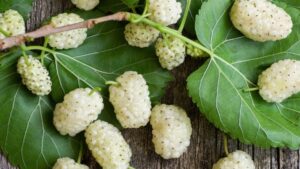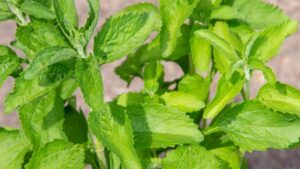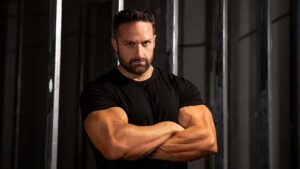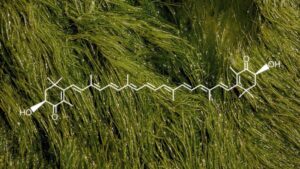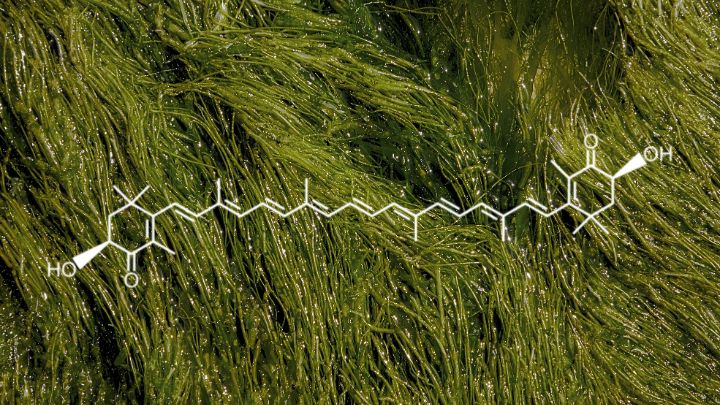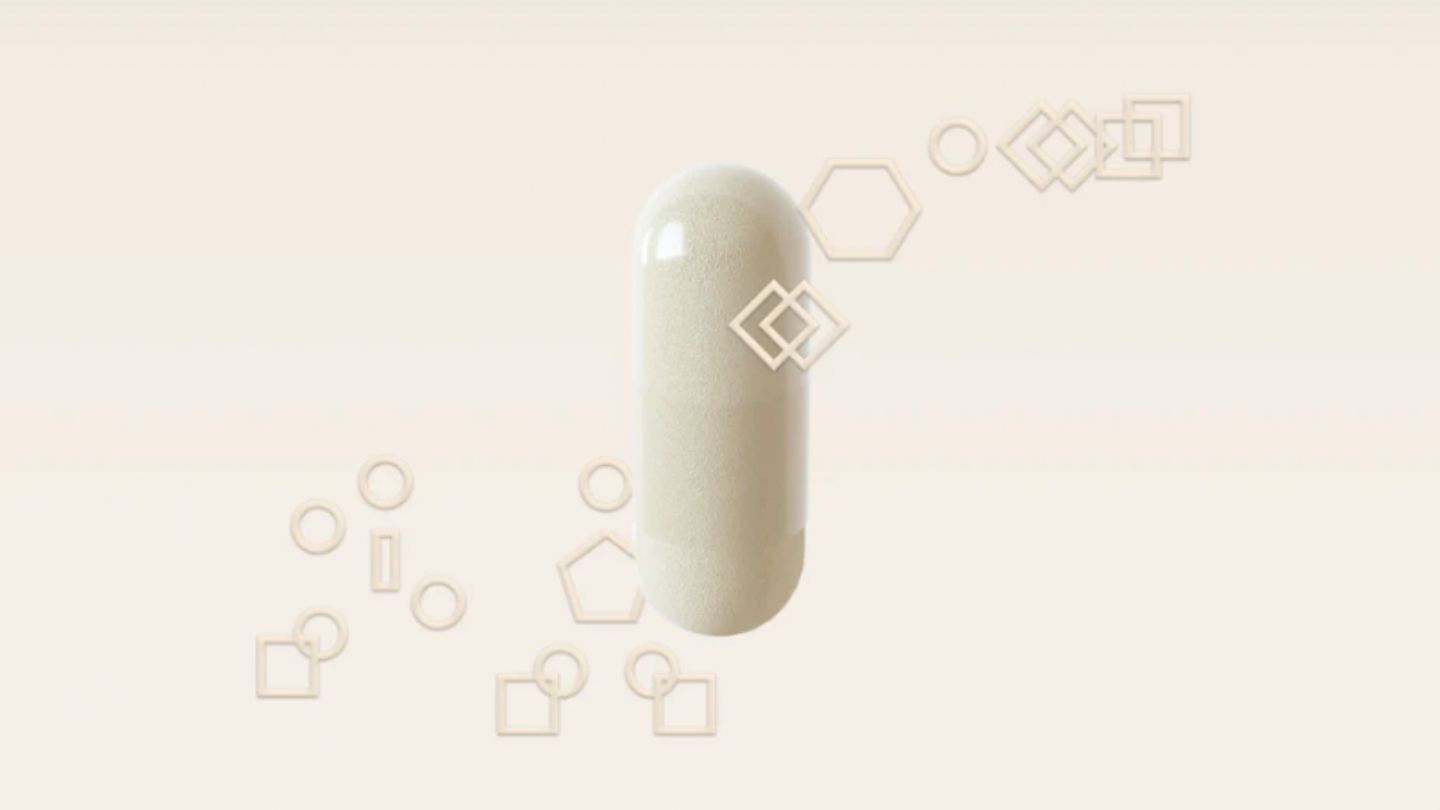Ever wondered how some people seem to age like a fine wine, whilst the rest of us feel more like a carton of milk?
Jokes apart, it might all come down to the choices we make on a daily basis. Some end up speeding our ageing process, whilst others slow it down. These determine our states later in life.
At Avea, we decided to take a step back from all the noise online, and look at David Sinclair and his anti-ageing supplements instead.
Sinclair isn’t an average Joe popping vitamin pills on Instagram or TikTok; he’s a Harvard professor and one of the go-to authorities on longevity for various reasons.
In this article
FREE anti-ageing guide

- Master the science of rejuvenation.
- Apply proven tips to turn back the clock.
- Transform your health with top longevity specialists.
Who is David Sinclair?
David Sinclair is a Professor in the Department of Genetics at Harvard Medical School and a co-director of the Paul F. Glenn Center for the Biology of Ageing. Born in Australia, he’s become one of the leading figures in the field of ageing and longevity research.

Sinclair is not just a lab person, but he also practices what he preaches.
He’s a best-selling author, of the book “Lifespan: Why We Age—and Why We Don’t Have To’’. He takes supplements daily that are well-supported by various studies.
So, if you’re keen on improving your health, productivity, sleep, and more, stick around. Let’s explore the what, why, and how of David Sinclair’s anti-ageing supplement routine.
Longevity is not immortality
David Sinclair doesn’t merely aim to add more candles to his birthday cake; he’s all about enhancing the quality of those ‘’late’’ years. It’s not “lifespan” that he’s trying to extend, it’s “health span”.
What’s the difference, you ask?

Lifespan is the total number of years you’re alive, whilst health span is the number of years you live in optimal health.
According to Dr. Sinclair, longevity isn’t just about living longer; it’s about living better. His ultimate goal is to compress morbidity—that is
- to live healthily,
- stay mentally and physically agile for as long as possible,
- to shorten the period of illness or decline at the end of life.
This involves a holistic approach that leverages latest scientific discoveries with well-recognised healthy practices from millennia.
At the heart of his healthspan-boosting strategy, is a carefully selected line-up of supplements, some of which he himself has done studies on.
David Sinclair and his anti-ageing supplements
Based on recent interviews and his book, here’s what Sinclair’s longevity drug stack looks like:
- Nicotinamide mononucleotide (NMN): 1g per day, in the morning
- Resveratrol: 1g per day, in the morning
- Metformin: 800 mg, in the evening
- Vitamin D3: ideally 4,000 to 5,000 IU per day
- Vitamin K2: ideally 180 to 360 micrograms per day
- Low-dose aspirin: 83 mg per day
- Spermidine: 1 mg per day, in the morning
- Quercetin and fisetin: 500 mg each, once per day, in the morning
- TMG (trimethylglycine or betaine): 500 mg to 1,000 mg per day
Let’s explore why these supplements are his best choice.
Nicotinamide Mononucleotide (NMN)
Nicotinamide Mononucleotide (NMN) is a derivative of Vitamin B3 and a precursor to NAD+, a molecule crucial for cellular energy and repair. Sinclair opts for a 1g daily dosage, although it is a high dose.
250 to 500 mg is sufficient to benefit from NMN’s health promoting effects. Clinical studies, usually done with 250 mg per day, indicate that NMN enhances
- sleep quality
- physical stamina
- insulin responsiveness
- appearance of ageing skin
- walking speed
- cholesterol levels
- blood pressure
- weight management.
Animal research shows NMN’s capacity to even reverse effects of heart and brain diseases.
Resveratrol
Yes, it’s that compound you’ve heard about in red wine. In 1992, Resveratrol gained considerable interest after being linked to the cardioprotective effects of red wine. Ever since, it’s being studied extensively for its anti-ageing benefits (+12000 published papers).
Resveratrol is a plant-based chemical– a polyphenol– produced to act as one of their natural defence system against environmental stressors. It is a powerful antioxidant with anti-inflammatory and antioxidant properties.
Studies show Resveratrol may also activate our longevity-associated sirtuin enzymes, thought to be responsible for the benefits of calorie restriction and exercising.
Sinclair takes 1 gram of Resveratrol each morning. Animal studies have shown that Resveratrol delays heart and skeletal muscle ageing, promotes kidney health, boosts memory, delays ovarian ageing, and reduces brain cell inflammation.
When paired with NMN, Resveratrol enhances NMN’s ability to
- raise NAD+ levels in cells.
- improve cognition by removing senescent cells.
- help combat liver ageing, when combined with the next compound on the list, metformin.
The best anti-ageing supplements
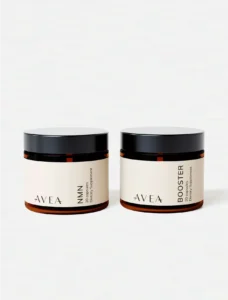
- All-star longevity ingredients like NMN, Resveratrol, CoQ10, and more.
- Promote healthier ageing at the cellular level.
- Maximise your energy production.
- Improve your mental clarity and focus.
*Sinclair also used to take a statin and CoQ10, but the current status is unknown.
Metformin
Originally used for Type II Diabetes, Metformin has shown promise in reducing the incidence of certain age-related diseases, thereby prolonging lifespan. Sinclair takes an 800 mg dose of metformin in the evening.
Animal research indicates that Metformin not only boosts the immune system, but also counteracts reproductive and organ ageing. It prevents muscle loss, reverses age-related changes in the gut, helps maintain tendon health, and reduces obesity-related fat.
So, it’s not just about lowering blood sugar; Metformin seems to be a multifaceted player in Sinclair’s anti-ageing game plan.
There’s still an ongoing debate about Metformin’s role in the society due to the potential unavailability of the drug, especially for people in need due to existing chronic conditions, such as Type II diabetes.
Spermidine
Each morning, Sinclair takes 1 mg Spermidine. You can find it in wheat germ, cheese, legumes, and also sperm. Spermidine has the ability to induce autophagy, which is basically, your cells’ in-built, rubbish removal service.
Animal studies suggest that Spermidine
- improve cardiovascular health by boosting blood flow
- strengthens the body’s defences against cancer
- mitigates brain inflammation and anxiety
- decreases liver ageing.
Quercetin
Sinclair incorporates 500 mg of quercetin into his morning routine. Now, quercetin is a polyphenol with a particular talent—it’s a senolytic. Meaning, it’s great at removing senescent cells.
Senescent cells are drivers of ageing. They cause chronic low-level inflammation and NAD+ depletion, leading to age-related diseases.
Most research on Quercetin pairs it with Dasatinib, a chemotherapy drug used for Leukaemia. This duo has been shown to enhance muscle and bone regeneration to boosting heart function and memory, in animal studies.
Reverse your age by 6.5 years like Ibrahim
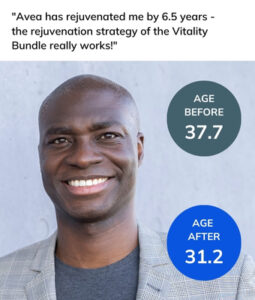
- Explore the secrets behind Ibrahim’s transformation.
- Discover simple, proven strategies to improve vitality.
- Understand the role of supplements in reversing biological age.
Fisetin
Sinclair also includes 500 mg of Fisetin in his daily regimen. Fisetin, much like its polyphenol cousin Quercetin, is a senolytic. In animal research, Fisetin has been shown to
- improve cognitive function
- ease brain inflammation
- tackle symptoms of depression
- promote kidney health
- help in muscle strengthening and lifespan extension.
Vitamins D3 and K2
Vitamin D3 is known as the ‘sunshine Vitamin,’ whilst K2 is essential for bone health, and proper functioning of D3.

About 95% of the world population is deficient in Vitamin D.
Recent studies also point to their role in cardiovascular health and metabolic processes. Sinclair takes 4,000 to 5,000 IUs of Vitamin D and 180 to 360 mcg of Vitamin K per day.
Combining Vitamin D3 with Omega-3s and exercise is associated with a 60% lower risk of cancer in older adults. In mice, Vitamin D3 also activates sirtuin activity to slow colorectal cancer growth, and help alleviate arthritis. It requires certain cofactors to function.
This is why at Avea, we developed the Essentials — An all-in-one sachet, packed with vegan, essential micronutrients: Vitamin D3, Vitamin K2, Zinc, Magnesium and Omega-3.
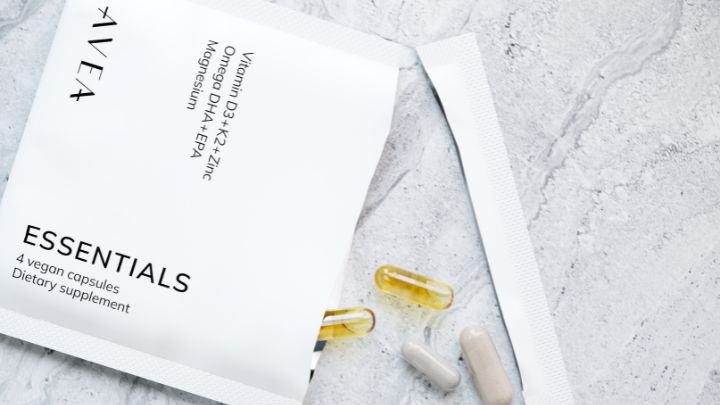
Vitamin K2 helps to direct calcium to bones and teeth, while Zinc supports immune function and Vitamin D receptor activation. Magnesium and Omega-3 are essential to convert D3 into its active form.
Low-dose Aspirin
Sinclair takes a daily 83 mg of Aspirin, a choice that comes with its share of debate, especially around its efficacy in reducing cardiovascular risk. Yet, he says he’s sticking with Aspirin until he sees compelling evidence to suggest otherwise. A low-dose Aspirin has been linked to a decreased cancer risk.
Trimethylglycine (TMG)
Sinclair incorporates 500 to 1,000 mg of TMG (Trimethylglycine) into his daily regimen. According to Sinclair, taking NMN can ramp up nicotinamide levels in the body. When these elevated nicotinamide levels get processed by the kidneys, they’re methylated—basically, they get a chemical tweak called a methyl group. This process, though, can deplete your body’s own stock of these vital methyl groups.
Methyl groups are pretty essential for many bodily functions, including acting as antioxidants. Sinclair takes TMG to essentially ‘top-up’ these methyl groups. Though, he admits he’s not entirely sure if this extra TMG is strictly necessary, since the body can produce its own methyl groups. But given TMG is both safe and easy on the wallet, he considers it a worthwhile precaution.
What does Sinclair’s supplement list have to say?
Sinclair’s personal supplement regimen isn’t necessarily applicable to everyone. As someone who experiments professionally, he claims these work for him. Human trials of many of those compounds are still pending.
- That said, clinical evidence does support the anti-ageing potential of NMN. Learn more here.
- Maintaining sufficient levels of Vitamins D and K, as well as Omega-3s, are also recommended for optimal health. Learn more here.
Other longevity practices of David Sinclair
When it comes to longevity, Sinclair doesn’t depend solely on supplements. He adopts a well-rounded approach that consist of nutrition, exercise, stress management, and cutting-edge science and technology.
- Nutrition
Sinclair usually favours 2 meals a day, and practices intermittent fasting. He makes sure to drink a lot of green tea, and leans mostly toward plant-based options. Sinclair also tries to limit his red meat and alcohol intake.
- Exercise
Sinclair cannot emphasise more on the importance of physical activity. He runs about once or twice a week, alternating low- and high-intensity workouts. He also weighlifts, but mentions how he’s working out to be healthy, not muscular.
- Health Monitoring
Sinclair utilises Continuous Glucose Monitors (CGMs) to continuously track his blood glucose levels for optimal metabolic health. A small sensor inserted under the skin captures data on how his body reacts to food, exercise, stress, and sleep. This data is conveniently accessible via a smartphone app for easy interpretation.
David Sinclair’s supplement doses
Reference taken from Fast Life Hacks, here.
